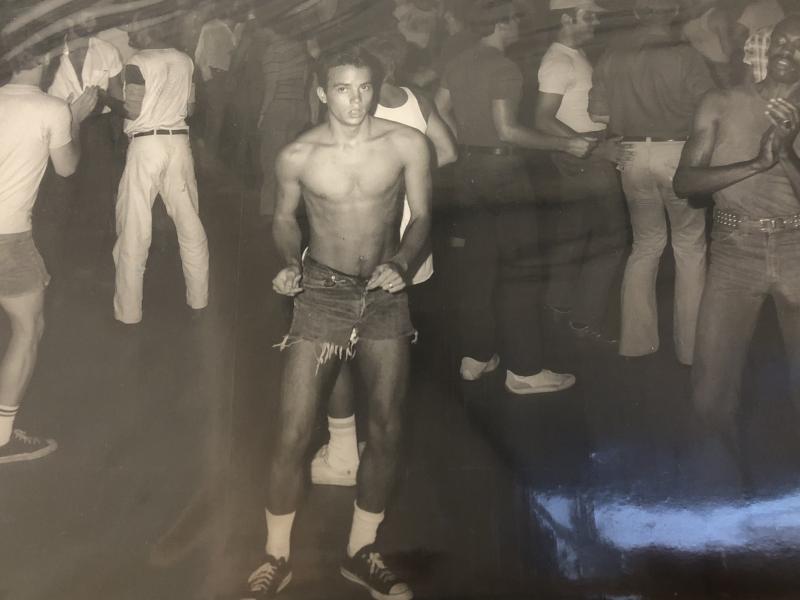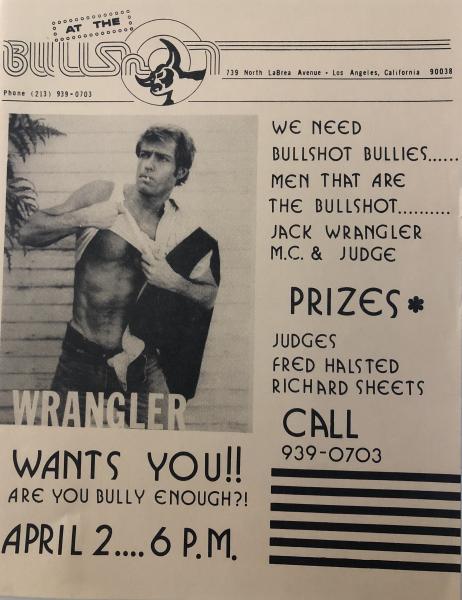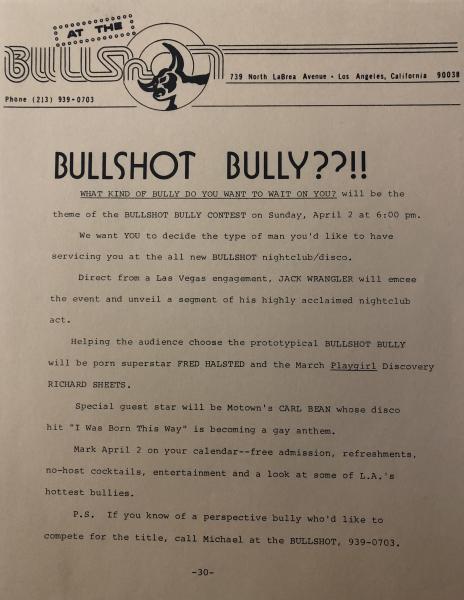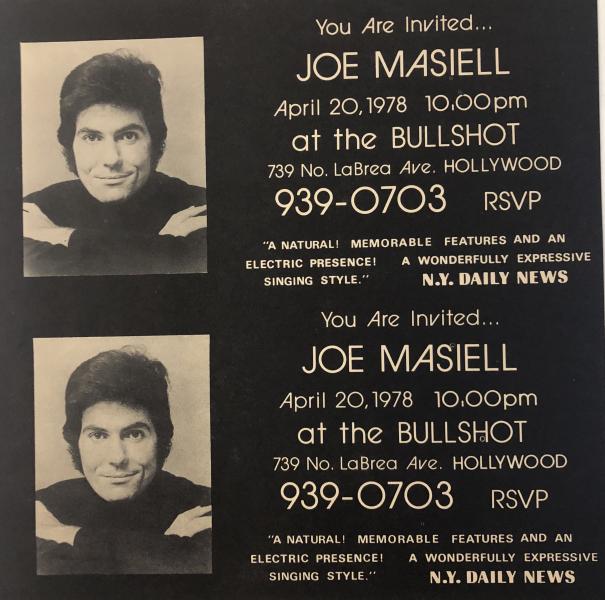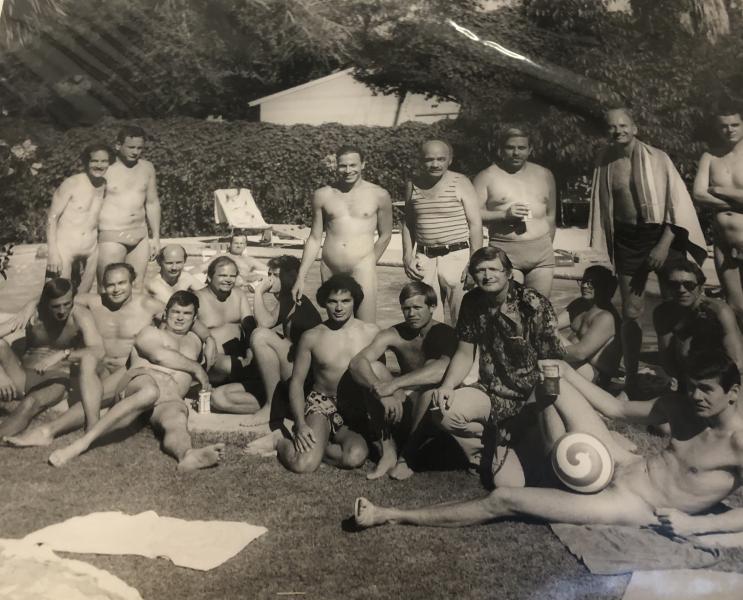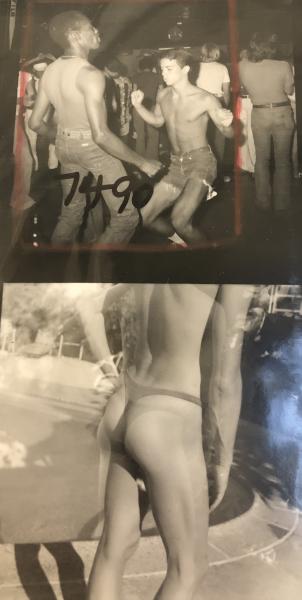Bullshot was known as a Western disco per its listing in the Bob Damron guidebooks (Damron 1979). Posters and advertisements make it clear that Bullshot also had a strong interest in cultivating a space informed by the macho pillar of disco culture. One advertisement was a recruitment piece for the “Bullshot Bully Contest,” a search to see what kind of “bully” that patrons wanted to wait on them (ONE Archives, Subject Files). No specific descriptors for the desired competitors were given, other than the word “bully.” Another poster for the same event shows a picture of a shirtless man with a chiseled figure wearing a white tank top and blue jeans while smoking a cigarette (ONE Archives, Subject Files). This image next to the call for “bully” men indicates the invocation of a traditional, rugged masculinity that was so much a part of the Western trend within disco. The play on words between Bullshot and “bully” indicates the intention of the owners to align the brand of their club with this idea.
In addition to its propensity toward rugged masculinity, expression of sexuality appeared to have been important at Bullshot. Photographs taken by Pat Rocco show men dancing shirtless at Bullshot, one of whom is Gavin Dillard (Rocco), also known as “the Naked Poet,” a man who later published an autobiography detailing his personal and professional lives in the Los Angeles gay scene at the time. Other photographs from the same collection show a pool party that included some of Bullshot’s dancers, men with chiseled bodies (Rocco). A liberated male homosexuality appears to have been important to Bullshot’s culture.
Another part of the message Bullshot tried to put out was quality entertainment. One flyer entitled “At the Bullshot” included an entire review of upcoming performer Kay Dennis by Variety magazine, detailing the best points of her “intentionally intimate act” (ONE Archives, Subject Files). Another poster included praise from N.Y. Daily News. of singer Joe Masiell, who was slated for performances at Bullshot (ONE Archives, Subject Files). The inclusion of these positive reviews for their performers indicates Bullshot’s desire for credibility in terms of its entertainment. Outside validation aimed to convince their intended clientele that entertainment of quality was to be expected at Bullshot. They knew the importance of performance to gay disco-goers. In this, Bullshot was much like other discos of the time, setting itself apart mostly in its blatant tendency toward rugged, traditional masculinity.
